——Zhejiang University’s Undergraduate Exchange Program at Hong Kong Polytechnic University in 2025
To further deepen academic exchange and collaboration in the field of biomedical engineering, during the 2025 winter break, the College of Biomedical Engineering and Instrument Science at Zhejiang University organized an outstanding group of undergraduates for a week-long academic exchange program titled Frontiers in Medical Engineering and Medical Imaging: Exploration and Innovation at Hong Kong Polytechnic University. The program focused on cutting-edge technology translation and research skill development, fostering academic dialogue between faculty and students from both institutions through diverse activities such as lectures, laboratory visits, and hands-on research practices.
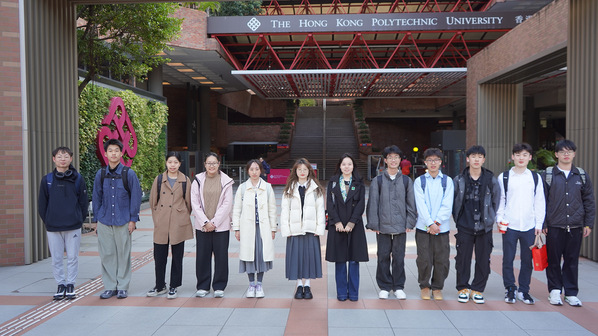
【Academic Dialogue Opens New Horizons】
Invited by Professor Qiu Anqi’s research team at Hong Kong Polytechnic University, the delegation first visited the Department of Health Technology and Informatics. During a symposium, Professor Cai Jing, Head of the Department, delivered a welcome speech and introduced the department’s academic framework. Attendees included Deputy Head Professor Zou Xiang, Professor Qiu Anqi, Associate Professor Lin Liangting, and Clinical Associate Professor Leung Yanshun. Students engaged in in-depth discussions with faculty members, expressing eagerness to immerse themselves in Hong Kong PolyU’s academic environment and strengthen future collaborations.
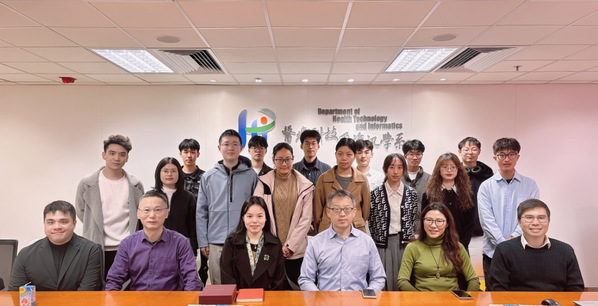
【cutting-edge Technology at Close Range】
The visiting group toured various laboratories at The Hong Kong Polytechnic University, including the University Research Facility in Behavioral and Systems Neuroscience (UBSN), the EEG Laboratory, X-ray Laboratory, Ultrasound Laboratory, Radiology Laboratory, and the department's research and teaching labs.
At UBSN, the students had an in-depth experience in the MRI Laboratory, Neurobehavioral Laboratory, Animal Laboratory, and the Simulated MRI Room, gaining a deep understanding of the clinical translation and humanistic practices of neuroscience technologies. In the EEG laboratory, students learned the basic principles of electroencephalography (EEG), signal features, and analysis methods, and observed the EEG signal acquisition process. They also had hands-on experience with transcranial magnetic stimulation and its effects on arm muscle responses. In the X-ray Laboratory, students observed the complete X-ray scanning process and operations, and even had the opportunity to scan electronic devices like mobile phones. In the Radiology Laboratory, Professor Leung Yanshun provided an in-depth introduction to the educational and training system for radiotherapists in Hong Kong and demonstrated the latest equipment in radiotherapy. Students not only had close exposure to advanced instruments, but also gained insights into the development of radiotherapy equipment. In practical sessions, students operated radiotherapy simulators and experienced the process of making radiotherapy face masks, which gave them a more direct understanding of radiotherapy technologies.
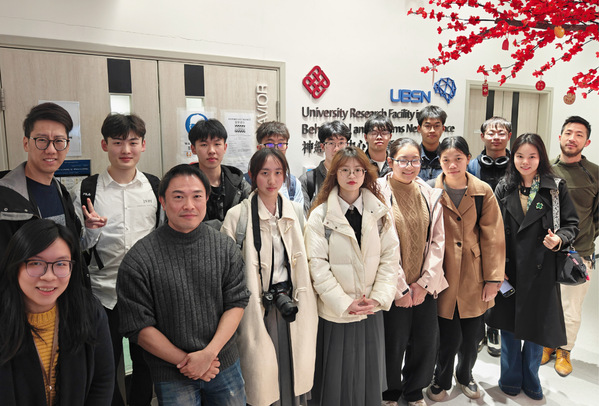
(UBSN)
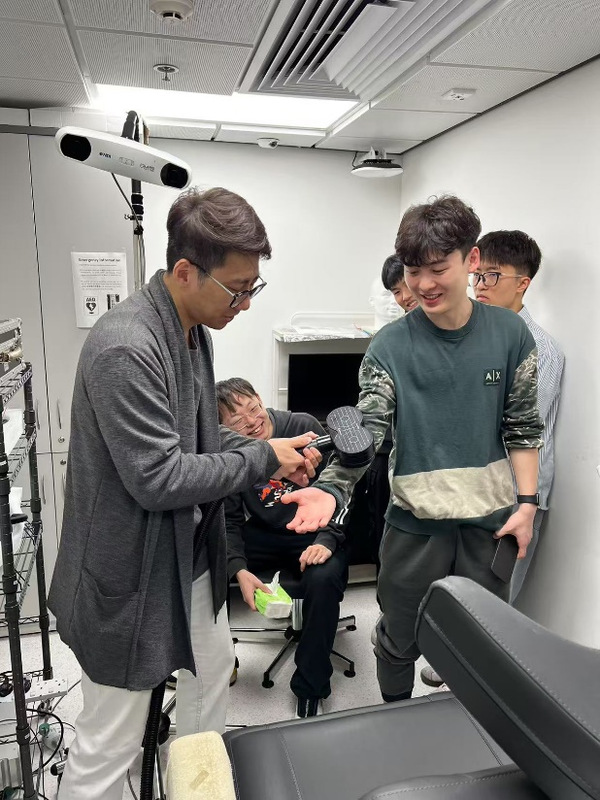
(EEG Laboratory)
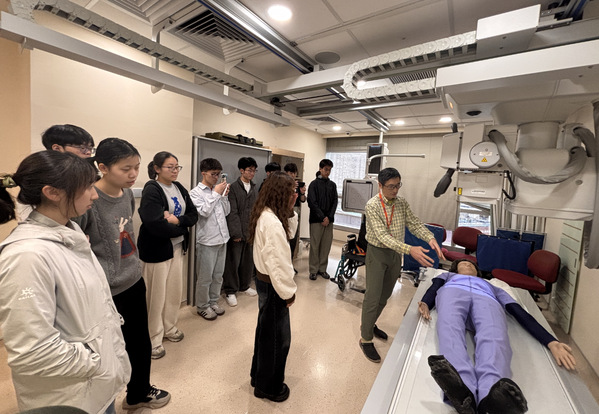
(X-ray Laboratory)
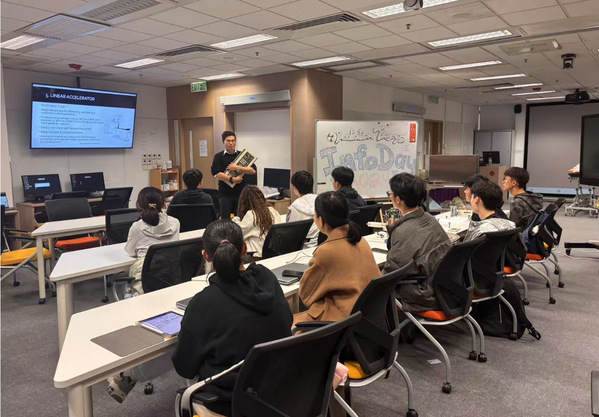
(Radiology Laboratory)
The department's research and teaching laboratories, equipped with advanced teaching tools and a rigorous research atmosphere, also left a deep impression on the visiting group. In the teaching lab, students observed how various instruments were used for teaching. In the research lab, they were introduced to molecular analysis technologies like DNA extraction, the operation of polymerase chain reaction machines, as well as microbiological culture, cell culture, and biochemical analysis techniques. This exchange provided students with an opportunity to experience hands-on biomedical research, and they worked in groups under the guidance of Professor Zou Xiang and his team.
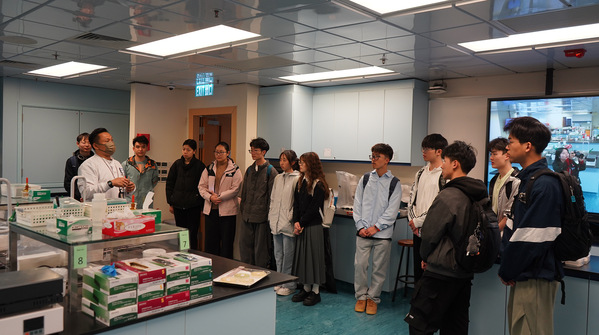
(Research and Teaching Laboratory)
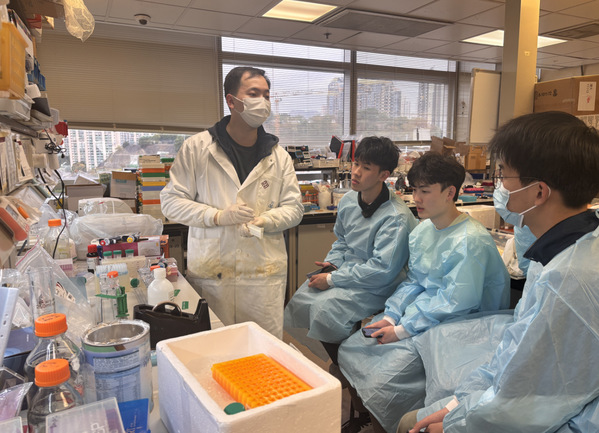
(Biomedical Experiment)
【Classroom and Campus Experience】
The visiting group also participated in a class by Professor Liangting on Radiation Therapy Research, where they learned about tumor stem cell division and differentiation, the history and applications of chemotherapy, hormone therapy, and targeted therapy. They benefited greatly from the session.
Beyond the classroom, the students toured the Hong Kong Polytechnic University campus and its exhibition hall, learning about the university's history and development.
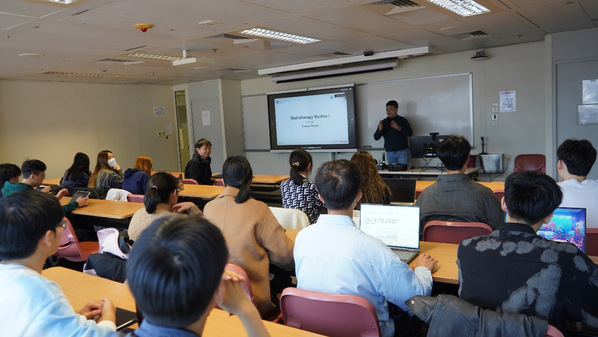
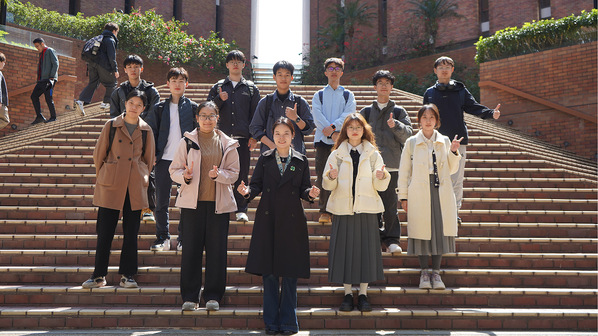
【Literature Discussion to Broaden Horizons】
Additionally, the group attended a literature-sharing session hosted by Professor Qiu Anqi's research team. They studied in-depth interpretations of cutting-edge research papers presented by senior students, and representatives made literature reports. This session not only allowed them to learn about the latest research directions in biomedical engineering, but also gave them a deep understanding of the knowledge-sharing model in research teams. During the discussion, Professor Qiu and the students explored topics such as research methodologies and career planning, offering invaluable advice for the students' future development and academic pursuits.
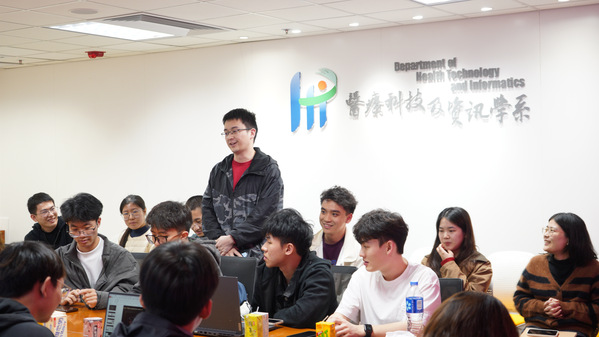
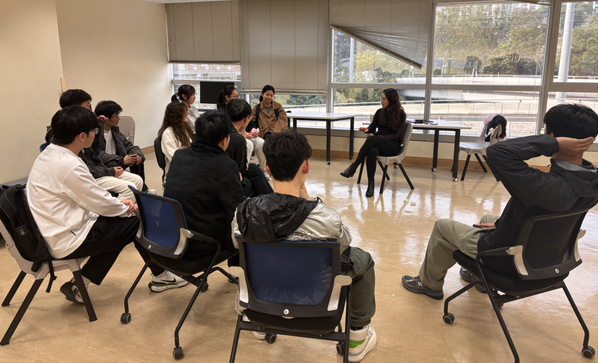
This exchange trip to Hong Kong Polytechnic University was not only an academic exploration but also a valuable experience of intellectual exchange and cultural integration. Throughout the one-week trip, the visiting group had a profound appreciation for the diverse charm and unique character of Hong Kong's higher education system, as well as a deeper understanding of the city itself.
Hong Kong Polytechnic University, as the main destination of this exchange, left a lasting impression with its rigorous academic atmosphere and advanced research facilities. From the evolution of equipment to treatment procedures, every detail highlighted the progress of biomedical engineering technology and humanistic care.
Beyond academic exchanges, the city of Hong Kong also left a strong impression on the group. As an international metropolis, Hong Kong not only boasts a vibrant urban landscape but is also a model of multicultural integration, with every corner reflecting the city’s unique charm.
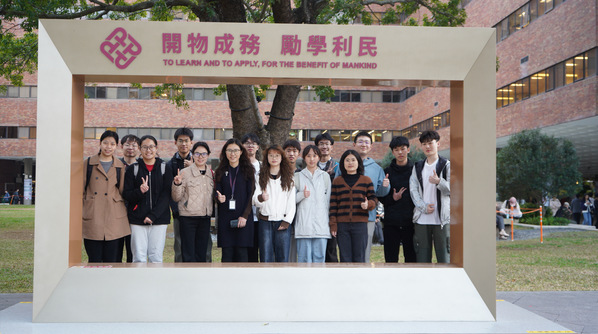
Standing at a new starting point, the students have become more determined to transform their professional knowledge into practical applications. This trip to Hong Kong was not just an academic journey but also an exploration and expansion of future paths. They look forward to integrating what they have learned and experienced into their future studies and research, contributing to the advancement of the biomedical engineering field. Furthermore, they have gained a deeper understanding of the importance of cross-cultural exchange and cooperation in a globalized world, which will be an invaluable asset in their future growth.
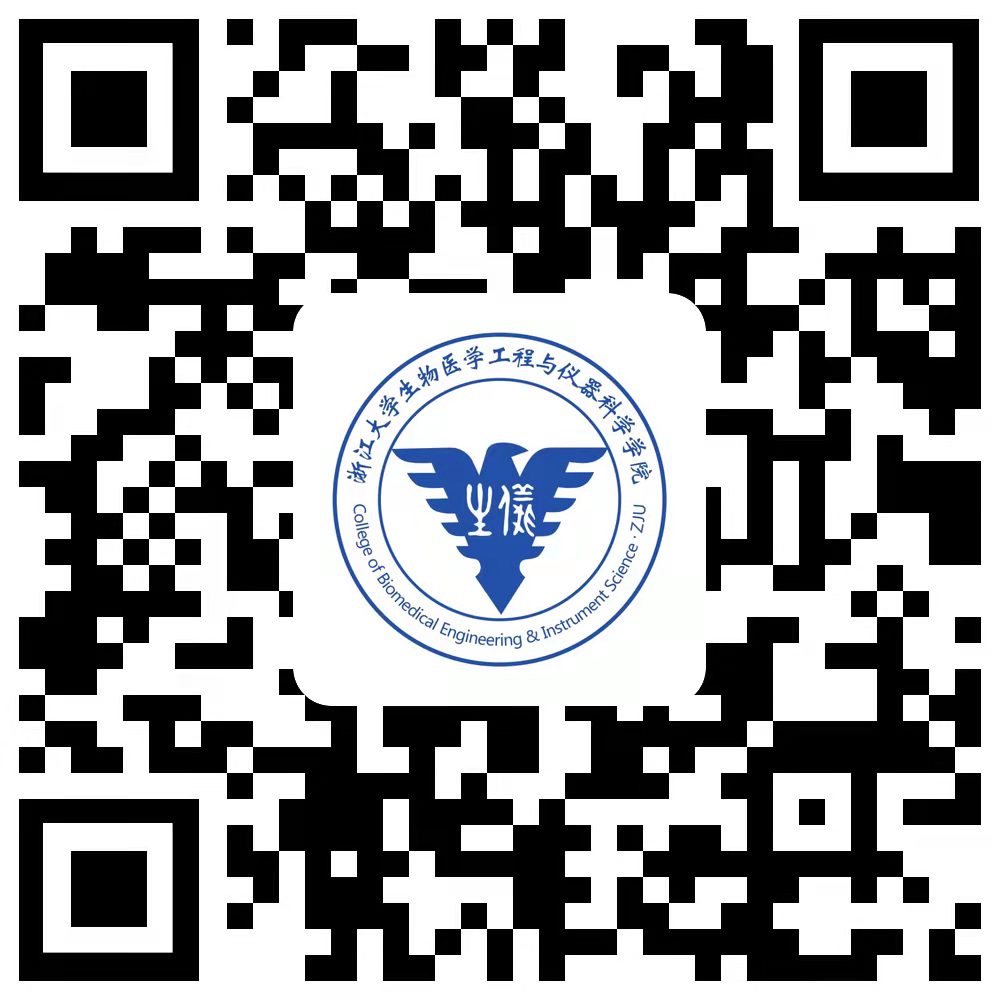
 地址:杭州市浙大路38号 浙江大学玉泉校区周亦卿科技大楼
地址:杭州市浙大路38号 浙江大学玉泉校区周亦卿科技大楼
 电话:0571-87951086
电话:0571-87951086
 邮编:310027
邮编:310027